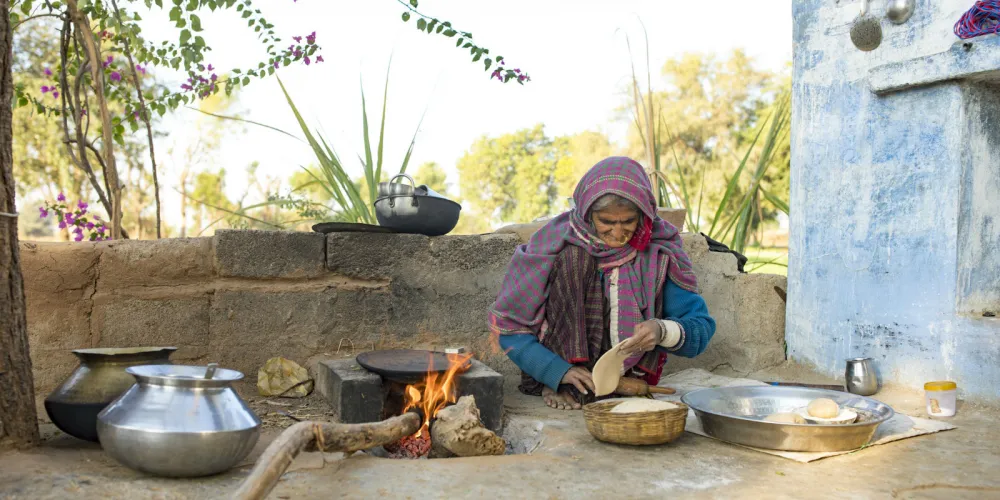New study recommends measures to address stigma faced by burn survivors in health facilities

Findings call for health system reforms, provider training, and better patient support mechanisms.
Researchers at The George Institute for Global Health India have identified key areas where India’s health system can improve support for patients seeking care for burn injuries. The study, based in Uttar Pradesh, explores how burn survivors experience stigma and discrimination within healthcare settings and proposes a set of policy and practice recommendations to address these gaps.
The research is the first of its kind study globally which specifically aimed to assess stigma faced by burn patients in hospitals and healthcare settings.
Even as survival rates have increased with better medical care, the study suggests that institutional neglect, under-resourced facilities, overburdened staff, and systemic failures are some reasons for burn patients receiving discriminatory and low quality of care. It can result in emotional, physical, and psychological damage, particularly for patients with visible disfigurements or disability and those from underprivileged backgrounds.
Burns is a major public health problem. Worldwide, there are about 180,000 deaths each year, with the greatest burden in low- and middle-income countries. India contributes to the largest burden approximately 2.1 million of burn injuries, 25,000 deaths, and more than 1.4 million disability-adjusted life years (DALYs) annually.
While India has made commendable strides in emergency burn care in recent years, long-term issues such as persistent stigma, inadequate mental health support, and limited social reintegration of recovered patients remain largely neglected. The study was conducted in Uttar Pradesh, India’s most populous state of more than 200 million, of whom 77.7% reside in rural areas. With its limited medical infrastructure and health indicators, the region was a critical location for such a study, emphasising the pressing need for systemic upgrades in patient care throughout India.
Recommendations from the Study include:
- Introduce structured training and counselling for healthcare providers on burns-related stigma, patient-centred care, and mental health support.
- Update medical and nursing curricula to include modules on empathetic communication and psychosocial aspects of burn recovery.
- Strengthen hospital-based support systems including mental health services and rehabilitation pathways, especially in public facilities.
- Develop and implement anti-discrimination policies in health institutions, tailored to the needs of visibly injured or disabled patients.
- Engage multiple stakeholders, including government departments, legal aid services, and civil society, to improve awareness and facilitate reintegration of burn survivors into communities.
- Timely action to create a respectful and inclusive environment for burn survivors. It also calls for stronger legal protection against discrimination, particularly in cases of burns from acid attacks, and better coordination among government, hospitals and communities to improve care and support services.
The study was led by Pratishtha Singh, along with Dr. Jagnoor Jagnoor and Dr Vikash Ranjan Keshri from The George Institute for Global Health, and co-authored by Dr. Mohammed Fahud Khurram from Jawaharlal Nehru Medical College, Aligarh Muslim University, and Dr. Brijesh Mishra from King George’s Medical University, Lucknow.
The research has been published in the reputed peer-reviewed journal Burns (DOI: https://doi.org/10.1016/j.burns.2025.107566).
Burn survivors, particularly women and poor people receive blame and isolation and face neglect in hospitals. At the same time, overworked and under-supported healthcare staff struggle with burnout, which can lead to unintentional but harmful behavior towards patients. Addressing both patient experiences and system challenges is key to building compassionate and fair burn care.By:Pratishtha Singh
Research officer, The George Institute for Global Health
Burn survivors show extraordinary resilience in the face of life-altering injuries. Yet, stigma within the very systems meant to support them continues to be a barrier to recovery and reintegration. Our research highlights the urgent need to create inclusive, dignified spaces that empower survivors to heal, thrive, and reclaim their place in society.
By:Dr. Jagnoor Jagnoor,
Head, India Injury Division
Findings from this study suggest that practical steps such as improved provider training, dedicated counselling services, and clear operational guidelines can help create a more supportive environment for burn patients in healthcare facilities
The research was carried out as part of the Royal Society of Tropical Medicine and Hygiene (RSTMH) Early Career Grants Program, supported by the National Institute for Health and Care Research (NIHR), UK.
Stay connected and updated
Subscribe to our mailing list for the latest news, events, and updates in health research.



